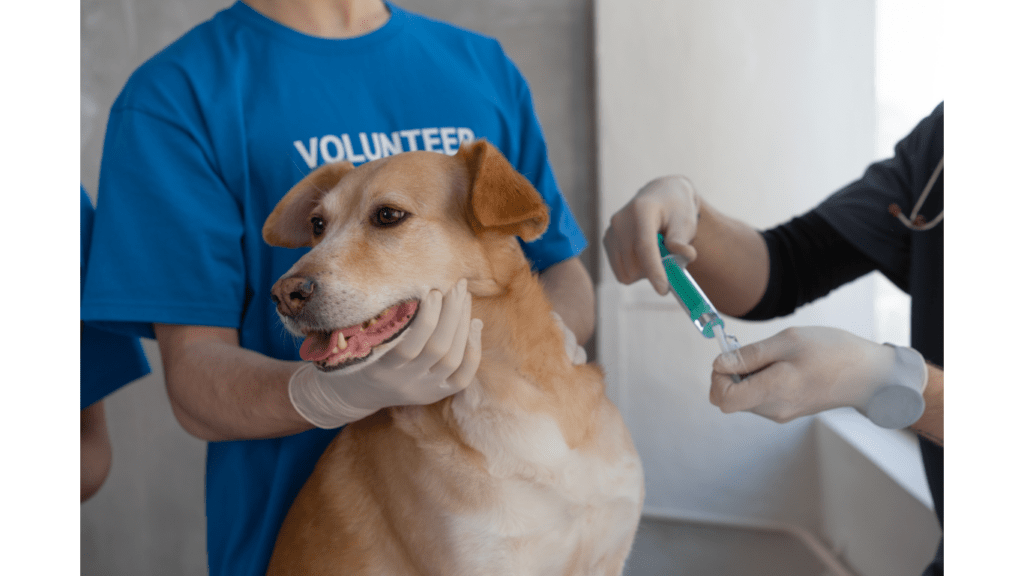Understanding Pet Health and Wellness
The Importance of Regular Vet Checkups
Ensuring your pet’s well-being involves scheduling regular vet checkups. These appointments play a crucial role in maintaining your pet’s health by detecting any potential issues early on. Regular checkups help monitor your pet’s overall health status, ensuring they are up-to-date on vaccinations and parasite prevention. By visiting the vet routinely, you can address any concerns promptly and receive professional guidance on keeping your pet in optimal condition.
Nutrition: Building Blocks of Vitality
Nutrition serves as the foundation for your pet’s vitality. Providing a balanced diet tailored to your pet’s specific needs is essential for their overall well-being. A diet rich in high-quality proteins, essential vitamins, and minerals is key to promoting a healthy lifestyle for your pet. Consulting with your vet to determine the most suitable diet for your furry companion can significantly impact their energy levels, immune system, and longevity.
Exercise: Keeping Your Pet Active
Regular physical activity is vital for keeping your pet healthy and happy. Engaging in daily exercise routines helps manage your pet’s weight, improves their cardiovascular health, and enhances their mental well-being. Whether it’s a fun game of fetch, a brisk walk, or interactive play sessions, staying active is beneficial for your pet’s physical and emotional health. Tailoring the exercise regimen to your pet’s age, breed, and individual preferences ensures they stay active and maintain an optimal quality of life.
Essential Health Tips for Different Pet Species
Dogs: Exercise and Heart Health
- Exercise is crucial for dogs to maintain a healthy heart and overall well-being. Regular physical activity helps prevent obesity, improves cardiovascular function, and strengthens muscles. As a dog owner, I prioritize daily walks, interactive play sessions, and engaging in activities that match my dog’s energy level. It’s important to tailor the exercise routine to my dog’s breed, age, and health status to ensure it’s beneficial and safe. Monitoring my dog’s weight and ensuring consistent exercise can significantly contribute to their heart health.
Cats: Weight Control and Disease Prevention
- Maintaining a healthy weight is essential for cats to prevent various diseases and promote longevity. As a cat owner, I focus on providing a balanced diet, portion control, and engaging my cat in regular play sessions to manage their weight effectively. I ensure that my cat has access to fresh water at all times and offer nutritious meals to support their overall health. Preventing obesity in cats can help reduce the risk of diabetes, heart conditions, and joint problems, enhancing their quality of life.
Birds: Mental Stimulation and Longevity
- Mental stimulation plays a crucial role in promoting the longevity and well-being of birds. As a bird owner, I offer a stimulating environment with interactive toys, varied perches, and opportunities for mental challenges. I engage in activities that encourage natural behaviors and provide social interaction to prevent boredom and improve my bird’s mental health. Creating a diverse and enriching habitat for my bird enhances their cognitive abilities, reduces stress, and contributes to their overall happiness and vitality.
Reptiles: Unique Habitat Needs
- Reptiles have unique habitat requirements that are essential for their health and happiness. As a reptile owner, I pay attention to factors such as temperature, humidity levels, lighting, and proper substrate in their enclosure. I provide a suitable habitat that mimics their natural environment to ensure their physiological and behavioral needs are met. Maintaining the correct habitat conditions is crucial for the overall well-being, metabolism, and comfort of my reptile. By creating a habitat that meets their specific needs, I support their health and help them thrive in captivity.
Preventative Care for Long-Term Pet Health
1. Vaccinations and Parasite Control
Ensuring my pet’s vaccinations are up-to-date is a top priority when it comes to preventive care. Regular vaccinations help in protecting them against various diseases and maintaining their overall health. Alongside vaccinations, parasite control is crucial. I make sure to follow my vet’s recommendations for flea, tick, and heartworm prevention to safeguard my pet from these common but harmful parasites.
2. Dental Care: An Often Overlooked Aspect
Dental care is an aspect of pet health that many owners tend to overlook. Just like humans, pets also need proper dental hygiene to prevent issues such as gum disease, tooth decay, and bad breath. I incorporate dental care into my pet’s routine by brushing their teeth regularly and providing dental treats or toys that promote oral health. Regular dental checkups with the vet are also essential to address any dental concerns promptly.
3. Spaying and Neutering: Benefits Beyond Birth Control
Spaying or neutering my pet goes beyond birth control—it offers various health benefits and helps in controlling pet overpopulation. This procedure can reduce the risk of certain cancers and behavioral issues in pets. I consulted my vet to decide on the appropriate timing for spaying or neutering based on my pet’s breed and health considerations. Making this decision has not only contributed to my pet’s long-term health but has also played a role in responsible pet ownership.
Common Health Issues and Remedies

Recognizing Signs of Illness in Pets
When it comes to detecting potential health issues in pets, vigilance is key. Observing changes in behavior, appetite, energy levels, or bathroom habits can often signal underlying problems. Common signs of illness include lethargy, loss of appetite, vomiting, diarrhea, excessive thirst, coughing, sneezing, limping, or unexplained weight loss. If you notice any of these symptoms, it’s important to promptly consult a veterinarian to address the issue and prevent any further complications.
Treatment Options: Traditional and Alternative Medicine
When exploring treatment options for your pet, it’s essential to consider both traditional veterinary medicine and alternative therapies. Traditional medicine may involve prescription medications, surgical procedures, or dietary changes prescribed by a licensed veterinarian. Alternatively, alternative therapies such as acupuncture, herbal remedies, or physical therapy can complement conventional treatments to enhance your pet’s overall well-being. Consulting with a veterinary professional can help you determine the most suitable approach based on your pet’s specific condition and needs.
Managing Chronic Conditions in Older Pets
As pets age, they may develop chronic health conditions that require long-term management to ensure their quality of life. Common chronic conditions in older pets include arthritis, diabetes, kidney disease, heart disease, or cancer. Managing these conditions often involves medications, special diets, regular vet visits, and monitoring for any changes in their health status. By working closely with your veterinarian and following a comprehensive care plan, you can help your older pet navigate these challenges and maintain their vitality in their senior years.
Enhancing Your Pet’s Wellbeing
The Role of Mental Health in Overall Wellness
Ensuring your pet’s mental health is as crucial as addressing their physical well-being. Pets, like humans, can experience stress, anxiety, and even depression. Environmental enrichment, interactive toys, and engaging activities are essential to stimulate their minds and promote mental agility. Creating a harmonious and stimulating environment at home can significantly improve your pet’s overall wellness.
Supplements and Superfoods for Pets
Supplements and superfoods can play a vital role in enhancing your pet’s health. Incorporating omega-3 fatty acids for joint health, probiotics for gut health, and vitamins for overall well-being can boost their immune system and vitality. Superfoods such as blueberries, sweet potatoes, and spinach can provide essential nutrients and antioxidants to support your pet’s health. Consult with your veterinarian to determine the right supplements and superfoods for your pet’s specific needs.
Holistic Approaches to Pet Care
Holistic pet care focuses on treating the whole animal, considering their physical, mental, and emotional well-being. Practices like acupuncture, chiropractic care, and herbal medicine can complement traditional veterinary treatments to promote balance and wellness in your pet. By addressing underlying imbalances and supporting your pet’s natural healing processes, holistic approaches can contribute to their overall health and vitality. Prioritize your pet’s well-being by exploring holistic care options alongside conventional veterinary practices.


